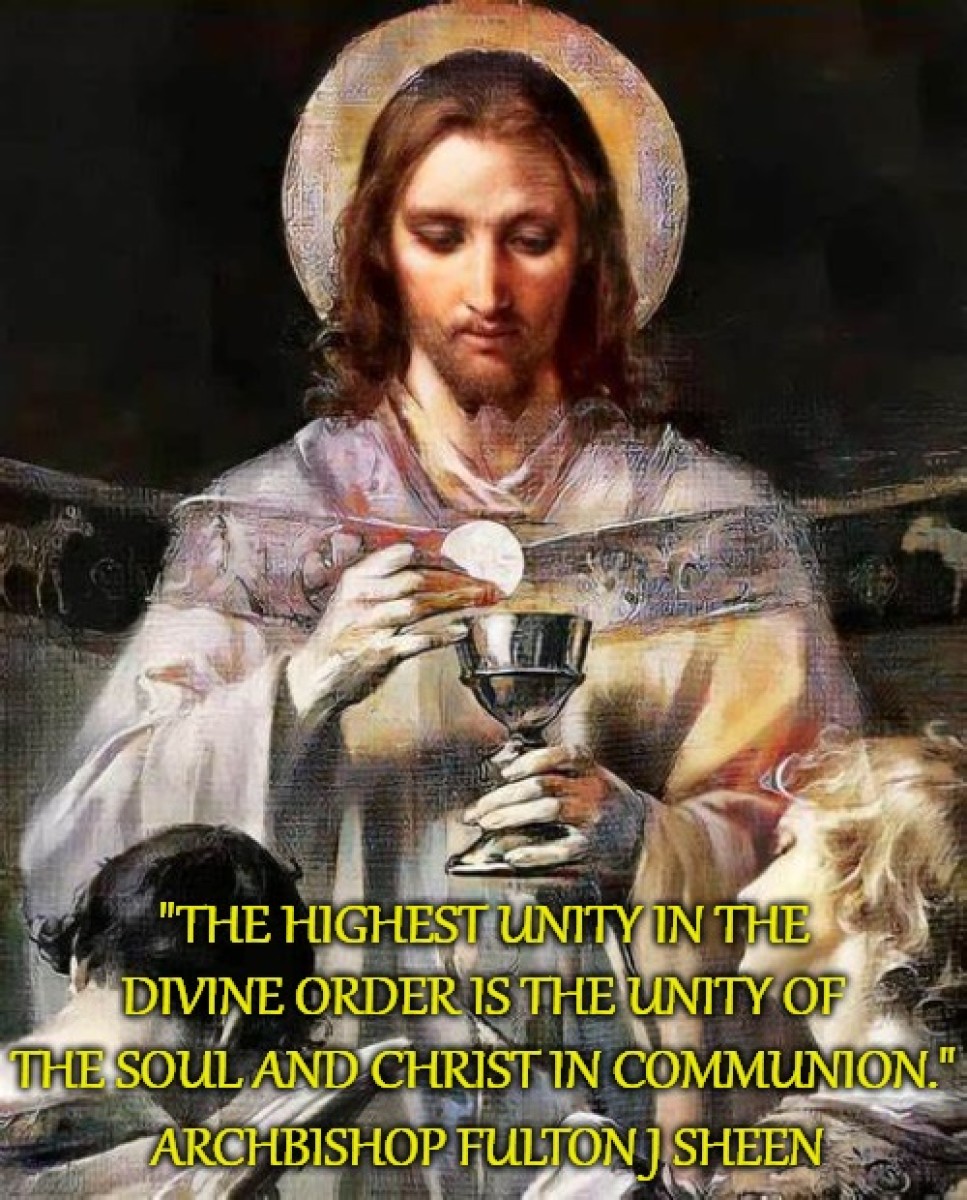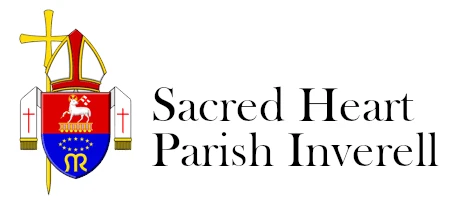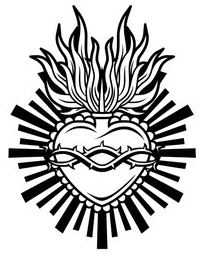Solemnity of the Most Holy Body & Blood of Christ / Corpus Christi (Year B) - 2 June
2nd June 2024

“Upon receiving Holy Communion, the Adorable Blood of Jesus Christ really flows in our veins and His Flesh is really blended with ours.” - St John Vianney
A reflection on today's Gospel by the Venerable Archbishop Fulton J Sheen:
"A Covenant or Testament is an agreement or compact or alliance, and in Scripture it means one between God and man. At the Last Supper, Our Lord would speak of the New Testament or Covenant, which is best understood in relation to the Old. The Covenant that God made with Israel as a nation was done through Moses as the mediator. It was sealed with blood, because blood was considered as a sign of life; those who mixed their blood or plunged their hands into the same blood were thought to have a common spirit.
"The Last Supper and the Crucifixion took place during the Passover, when the Eternal Son of the Father mediated a New Testament or Covenant, as the Old Testament or Covenant was mediated through Moses. As Moses ratified the Old Testament with the blood of animals, so Christ now ratified the New Testament with His own Blood, He Who is the true Paschal Lamb.
"‘This is My Blood of the New Covenant.’ The Hour of His exaltation having come, for within less than twenty-four hours He would surrender Himself, He gathered His twelve Apostles about Him. In one sublime act He interpreted the meaning of His death. He declared that He was marking the beginning of the New Testament or Covenant ratified by His sacrificial death. The whole Mosaic and pre-Messianic system of sacrifice was thus superseded and fulfilled. No created fire came down to devour the life that was offered to the Father, as it did in the Old Testament, for the fire would be the glory of His Resurrection and the flames of Pentecost.
"Since His death was the reason of His coming, He now instituted for His Apostles and posterity a Memorial Action of His Redemption, which He promised when He said that He was the Bread of Life. ‘He took bread and blessed and broke it, and gave it to them, saying, This is My Body, given for you.’ (Luke 22:19). He did not say, ‘This represents or symbolises My Body,’ but He said, ‘This is My Body’ - a Body that would be broken in His Passion.
"Then taking wine into His Hands, He said: ‘Drink, all of you, of this; For this is My Blood of the New Covenant, shed for many, to the remission of sins.’ (Matthew 26:28) His coming death on the following afternoon was set before them in a symbolic or unbloody manner. On the Cross, He would die by the separation of His Blood from His Body. Hence He did not consecrate the bread and wine together, but separately, to show forth the manner of His death by the separation of Body and Blood. In this act, Our Lord was what He would be on the Cross the next day: both Priest and Victim. In the Old Testament and among pagans, the victim, such as a goat or a sheep, was apart from the priest who offered it. In this Eucharistic action and on the Cross, He, the Priest, offered Himself; therefore He was also the Victim.
"Next came the Divine command to prolong the Memorial of His death: ‘Do this for a commemoration of Me.’ (Luke 22:19) Repeat! Renew! Prolong through the centuries the sacrifice offered for the sins of the world!
"After changing the bread into His Body and the wine into His Blood: ‘He gave it to them.’ (Mark 14:22) By that communion they were made one with Christ, to be offered with Him, in Him, and by Him. All love craves unity. As the highest peak of love in the human order is the unity of husband and wife in the flesh, so the highest unity in the Divine order is the unity of the soul and Christ in communion. When the Apostles, and the Church later on, would obey Our Lord’s words to renew the Memorial and to eat and drink of Him, the Body and Blood would not be that of the Physical Christ then before them, but that of the glorified Christ in heaven Who continually makes intercession for sinners. The Salvation of the Cross, being sovereign and eternal, is thus applied and actualised in the course of time by the heavenly Christ.
"When Our Lord, after He changed the bread and wine to His Body and Blood, told His Apostles to eat and drink, He was doing for the soul of man what food and drink do for the body. Unless the plants sacrifice themselves to being plucked up from the roots, they cannot nourish or commune with man. The sacrifice of what is lowest must precede communion with what is higher. First His death was mystically represented; then communion followed. The lower is transformed into the higher; chemicals into plants; plants into animals; chemicals, plants, and animals into man; and man into Christ by communion. The followers of Buddha derive no strength from his life but only from his writings. The writings of Christianity are not as important as the life of Christ, Who living in glory, now pours forth on His followers the benefits of His sacrifice.
"The one note that kept ringing through His life was His death and glory. It was for that that He came primarily. Hence the night before His death, He gave to His Apostles something which on dying no one else could ever give, namely, Himself. Only Divine wisdom could have conceived such a Memorial!
"Our Lord never told anyone to write about His Redemption, but He did tell His Apostles to renew it, apply it, commemorate it, prolong it by obeying His orders given at the Last Supper. He wanted the great drama of Calvary to be played not once, but for every age of His own choosing. He wanted men not to be readers about His Redemption, but actors in it, offering up their body and blood with His in the re-enactment of Calvary, saying with Him, ‘This is my body and this is my blood’ dying to their lower natures to live to grace; saying that they cared not for the appearance or species of their lives such as their family relationships, jobs, duties, physical appearance, or talents, but that their intellects, their wills, their substance - all that they truly were - would be changed into Christ; that the Heavenly Father looking down on them would see them in His Son, see their sacrifices massed in His sacrifice, their mortifications incorporated with His death, so that eventually they might share in His glory."
(Life of Christ)
Anima Christi by St Ignatius of Loyola
Soul of Christ, sanctify me.
Body of Christ, save me.
Blood of Christ, inebriate me.
Water from the side of Christ, wash me.
Passion of Christ, strengthen me.
O Good Jesus, hear me.
Within your wounds hide me.
Permit me not to be separated from you.
From the wicked foe, defend me.
At the hour of my death, call me
and bid me come to you
That with your saints I may praise you
For ever and ever. Amen. 💐💖🙏


